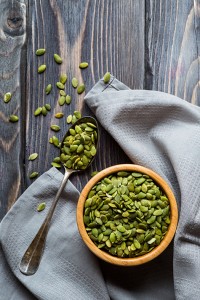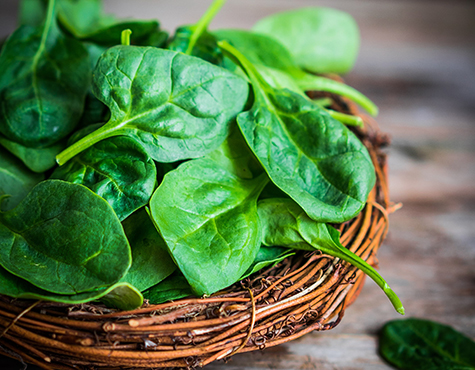Can Collagen Help You Look & Feel Younger?

You may have noticed collagen being sold in supplements, in protein powders, and taken as a boost to health. A hot trend right now, collagen in the diet has been around for a long time . . . as long as there have been animals, in fact. Collagen is the main protein in connective tissue and the most abundant protein in the body in all mammals. It is a structural component of cartilage, tendons, ligaments, bones, teeth, and skin. So why are people including it in their smoothies?
At its foundation, collagen is a protein so it can supplement the human diet like any other type of protein. You will find it packaged like other protein powders on store shelves. Collagen is what gelatin is made of so products that are thickened with gelatin like Jell-O or pudding often contain collagen. But it may have health promoting benefits as well for specific disease states.
Medicinally, collagen is used for:
- Treating arthritis including rheumatoid, osteoarthritis, gouty, and juvenile rheumatoid arthritis.
- Post-surgical joint pain
- Post-traumatic pain
- Back neck pain
 Collagen exists in many forms including types I, II and III which you may see on labels and supplements. Collagen is made by the body until the mid to late 20’s at which point production declines. A lack of collagen can cause visible signs of aging in the form of wrinkles in the skin. It may seem like a simple solution to take collagen supplements, but there is some evidence that when mixed into juice and taken orally, it is not well absorbed or utilized by the body in a way that could be supportive of health (or in a way that fixes wrinkles).
Collagen exists in many forms including types I, II and III which you may see on labels and supplements. Collagen is made by the body until the mid to late 20’s at which point production declines. A lack of collagen can cause visible signs of aging in the form of wrinkles in the skin. It may seem like a simple solution to take collagen supplements, but there is some evidence that when mixed into juice and taken orally, it is not well absorbed or utilized by the body in a way that could be supportive of health (or in a way that fixes wrinkles).
Despite health claims, there is insufficient reliable evidence to identify if using collagen is helpful in treating arthritis, pain, or helping the skin. There have been some studies that show improvements in study participant rating of joint pain and tenderness, but no actual improvement in x-ray images of joints. Other studies show conflicting data, with some participants reporting improvements and others not.
The good news is that you can get collagen or collagen precursors into your diet naturally, without supplements. Bone broth, wild salmon, blue-green algae like chlorella, dark leafy greens, citrus, bell pepper, strawberries, blueberries and tomatoes, eggs, garlic, and pumpkin seeds all either contain collagen or other nutritional factors that are required for the body to make it and support skin health like vitamin C, Vitamin E and zinc.
Because collagen is a natural protein that exists in all of us, it is deemed safe when taken orally in doses up to 2.5 mg per day. Studies have researched this use for up to 24 weeks so currently, that is the known safety limit for use. Collagen is not appropriate for vegans or vegetarians because it is animal derived; sometimes chicken sternum which is ground and mixed into liquid such as orange juice. The only adverse effects that have been reported in studies are mild gastrointestinal symptoms like stomach upset, vomiting, a bloated feeling, nausea, and burping.
How do you use collagen as a supplement? Let us know about your experience in the comments!
RESOURCES
Natural Medicines Database. Collagen. https://naturalmedicines.therapeuticresearch.com/databases/food,-herbs-supplements/professional.aspx?productid=714 Updated 2/14/2015. Accessed 9/17/17
Xie Q, Shi R, Xu G, et al. Effects of AR7 Joint Complex on arthralgia for patients with osteoarthritis: results of a three-month study in Shangai, China. Nutr J. 2018:7-31.
